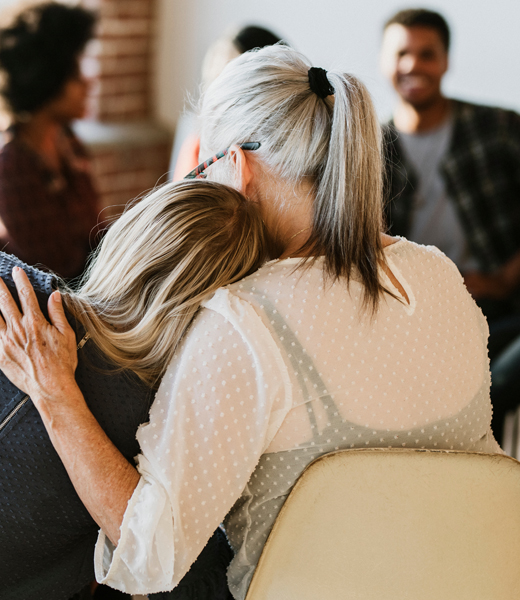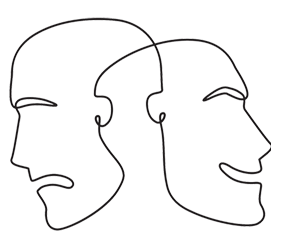Mindfulness Practice
Mindfulness is the opposite of making yourself busy.
“Awareness is like the sun. When it shines on things, they are transformed.”
- Thich Nhat Hahn

overview
Mindfulness is the way.
Jon Kabat-Zinn discusses seven particular attitudes that serve as the cornerstone of mindfulness in Full Catastrophe Living (1990). When you develop and deepen mindfulness, they immediately apply, both in the present and over the course of a day. These attitudes are acceptance, letting go, non-striving, patience, trust, beginner's mind, and non-judgment. The mindsets are intricately interwoven and mutually supportive. Learning one will help you with the others. Your long-term success and capacity to calm your racing mind will be greatly influenced by your capacity to bring these attitudes forward in your mindfulness practice. You will go back to them repeatedly as you master the actual meditation techniques, and you will realize what essential supports they really are.
Mindfulness is compassion, an open heart, and awareness without choices. It grows when you watch your own experience as it happens in the present moment as if you were a neutral observer. To do this, you have to start to relate to what you're experiencing in the present moment without judging it. When you put things into categories and make judgments about them, you get stuck in patterns of how you think, feel, and act. You might not even know that these things happen. When you judge, you cut yourself off from the direct experience of each moment and from the reality of life as it happens. When you practice mindfulness, it's important to be aware of the mind's tendency to judge and to recognize judgmental thoughts as they come up. It's just as important not to judge the people who judge! Just keep in mind that judging is there.
Patience: Patience is being able to deal with problems calmly and with self-control. It takes faith, courage, and a connection to your calm, peaceful center. To be patient, you also need to be kind and caring to yourself as you deal with the stress of the situation. Often, we get impatient when our egos, the selfish parts of us, demand that things be different than they are. Patience is a sign of a certain kind of wisdom. This knowledge knows that things have their own life cycles and that the ego is not always in charge. As you learn to trust this truth more and more, your patience will grow. To be more patient, you need to know what it feels like to be impatient. Watch for any tendency to rush through one moment to get to the next.
Beginner's Mind: When you start to pay attention to what is happening in the present moment, the thinking mind tends to think it knows everything about what is going on or tries to control what is going on by searching for more information. Thinking is like a filter that stands between you and the direct experience and real richness of life as it happens moment by moment. To have a beginner's mind means to be open to each moment as if it were the first time you were meeting it. Think about how excited a child gets when she sees something for the first time. The first smell of a flower, the first drop of rain, and the first taste of an orange are all things that you experience without thinking about them or comparing them to other things you've done or seen. These moments are felt, seen, heard, touched, and tasted exactly as they are in the present moment. In reality, every moment is different. Even though you may have seen a thousand sunsets before, you have never seen this one. The same is true if you take a million breaths or eat your favorite dessert a hundred times. This breath and this taste have never happened before and will never happen again. When you practice mindfulness, you are asked to develop this same direct experience, to see everything that comes up as a unique and valuable experience. This is what it means to have a beginner's mind.
Trust: One of the most important things you need to do to learn to meditate is to learn to trust yourself and your feelings. You learn to believe that you can see things as they really are. As you practice mindfulness, you'll become more aware of life and what you're going through in each moment. You'll get better and better at noticing what's going on around you and in your own body and mind, as well as what's going on in the present moment. You will learn that you are the best person to know what is going on inside and outside of your own skin. You don't need a professional to tell you this. You already have powerful attention and awareness skills that can help you learn to pay attention and be in the moment. Instead of looking outside of yourself for authority, it is important to learn to trust in your own ability to know yourself. During this process, you learn what it means to be your own person and live your life honestly.
We spend a lot of our lives doing things and trying to make things different. This is a habit that many people have, and it can make it hard to meditate. The ego mind wants more of the things it likes and less of the things it doesn't. When the ego mind thinks you aren't how you should be, it even tries to force you to change. This pressure to do and change feels like trying hard to be different, go somewhere else, or do something different. Mindfulness is just paying attention to what's going on without making any judgments about it. In this way, meditation is something that only people do. Meditation is all about not doing things. Meditation is a practice of being, not of doing. Notice when you feel like you're trying to make things better or change them. Don't judge yourself. Mindfulness is about really relaxing, letting whatever is happening happen, and paying clear, compassionate attention to it as it happens. Meditation is a contradiction. The best way to reach your meditation goals, whether they are to control anxiety and panic, reduce stress, grow spiritually, improve yourself, or something else, is to stop trying to get results and start paying close attention to seeing and accepting things as they are in each moment.
Acceptance: The acceptance process begins with an openness to see things as they are in the present moment. Can you maintain your attention in the present now, taking each moment as it comes and connecting with whatever arises? Often, to be able to accept what enters consciousness, it is necessary to experience extreme emotions such as wrath, fear, or grief. These feelings require acceptance in and of themselves. Acceptance is viewing things exactly as they are, as opposed to how you believe they are or how they should be. Remember that only the present can bring about change. If you intend to alter, heal, or modify yourself or your life, you must see things and yourself as they actually are in the present now. Acceptance involves softening and becoming receptive to what is present. The feeling of struggle is lifted. By ceasing to deny and resist the current state of affairs, you will find yourself with greater energy to heal and transform it. Accepting is not synonymous with liking everything or adopting a docile attitude. That does not imply that you must accept things as they are or that you must cease your efforts to improve the situation. Acceptance, as we are discussing it here, is simply the willingness to view things as they are, truly, honestly, and entirely. This mindset prepares you to operate in the most effective and healthy manner, regardless of the circumstances.
Letting Go: Letting go, also known as non-attachment, is another key mindfulness attitude. Frequently, people practice the opposite attitude, clutching, without being aware of it. Ideas and beliefs about yourself, others, and situations are frequently what you cling to the most. It has an internal clinging quality. It may be difficult to observe, but is simple to perceive. These concepts to which you adhere filter and profoundly alter your moment-to-moment reality. When you begin to pay attention to your inner experience through meditation, you will quickly become aware of the thoughts, emotions, and situations that your mind appears to want to cling to. You will also see additional items that it badly wants to eliminate. Clinging is motivated by likes and dislikes and by evaluations of objects. While you practice mindfulness, you must resist the need to evaluate each experience. Instead, you train yourself to identify instances of judgement. Don't get caught up in the positive or negative, the high or low, the pleasurable or painful. Moment by moment, let your experience be what it is. This allowing is basically a form of surrender. By not intervening, by simply letting things be, you improve their chances of success. Feel the contraction and hardening that occurs in response to both good and unpleasant situations? Letting go is simply releasing the tension surrounding the object and letting it to exist. It is unnecessary to move the object aside. No force is necessary. Just relax the contraction. Just let go. You actually do it frequently. Form a fist. Pinch it tight. Now let go. Observe the emotion. Try it again. This is the bodily experience associated with letting go. Meditation is the practice of letting go from the inside out. Acquaint yourself with the internal sensation of contraction in the body and psyche. Then, practice letting this go.
Let's Talk
You will receive a 15 minute phone call from our group leader, as an introduction to the program and to discuss suitability. This is free and without obligation.


















